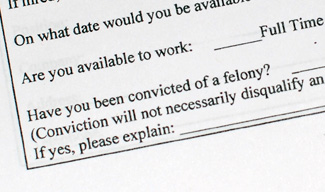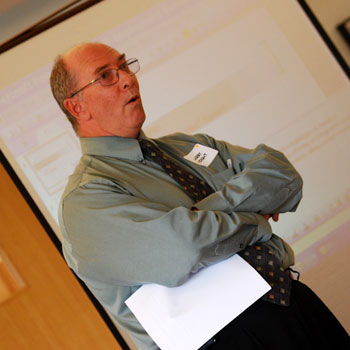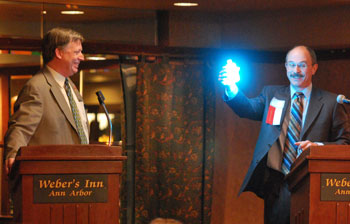What’s Your Federal Stimulus Good For?
Washtenaw County Board of Commissioners working session (April 8, 2010): Two presentations at Thursday’s working session were tied to the community’s health: how federal stimulus dollars are being spent, and how former prisoners are being helped, with the goal of reducing repeat offenses.
Mary King, coordinator of the Michigan Prisoner ReEntry Initiative of Washtenaw County, told commissioners how the MPRI is attempting to reduce the county’s high prisoner recidivism rate – a problem dating back several years. She also urged them to consider eliminating a question on the county’s employment forms that asks about an applicant’s felony history. Such questions can be barriers to employment, she said, and the biggest cause of parole failure is lack of a job.
Leaders of two county departments – Mary Jo Callan of the Office of Community Development, and Patricia Denig of Employment Training & Community Services (ETCS) – gave an update on how some of the county’s $22.69 million in federal stimulus funds are being spent. Those two departments alone have received $13.22 million for a wide range of programs, from job training to low-income housing. [Full Story]







